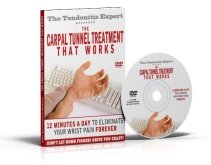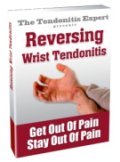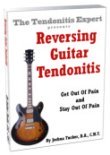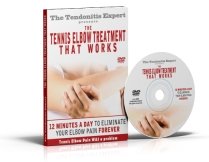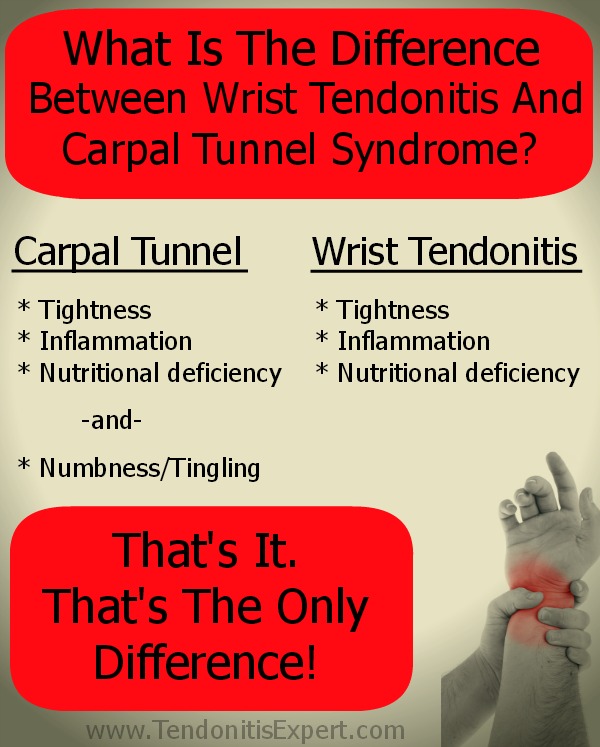Make Your Carpal Tunnel Surgery Recovery Fast And Complete
An effective plan for Carpal Tunnel Surgery Recovery is necessary if you want the best possible outcome from healing from surgery.
If you're lucky, before or after Carpal Tunnel surgery your doctor will give you post-surgery self care advice that consists of something more and other than "Take some Ibuprofen and take it easy for a couple days."
Carpal Tunnel surgery is not a quick fix. It comes with it's own set of problems since it is cutting into your flesh and causing damage that the body needs to adjust to and heal from.
If you expect to get the surgery and then be as good as new the next week, you are likely to end up very disappointed.
If you have already had the release surgery on your wrist(s), you are probably wondering how and when you are finally going to heal and be pain free again.
It's never to late to help heal your wrists from Carpal Tunnel symptoms. Even if you've had surgery. Surgery just makes it that much more complicated and adds time and effort to what you will need to do.
If someone were to ask 'What does Carpal Tunnel Surgery Recovery actually mean?" I would tell them that it means -actually- recovering after Carpal Tunnel surgery back to a 100% state of health.
Of course, nobody every asks this. We all just assume that we will heal back to as good as new after a surgical operation.
But we don't.
I really don't know why we assume that we'll heal back to 'normal', but we consistently do think that it will happen.
The body just doesn't work that way.
What Is The Best Form Of Carpal Tunnel Surgery Recovery?
There is a best way to heal from Carpal Tunnel surgery.
But you're not likely to get it from your doctor.
The standard recovery routine after Carpal Tunnel surgery is pain killers, anti-inflammatory drugs, rest, and then later strengthening exercises and possibly physical therapy.
Unfortunately, that is not the best routine for fast healing from either CTS surgery nor Tendonitis surgery.
If you want to heal fast from the operation, you must follow this three step course of action.
1. Reduce the Inflammation Response.
Surgery causes even more inflammation that there was before. Any time you cut the body you can expect that.
Inflammation makes the structure, and the entire nervous system, VERY UNHAPPY.
If you don't help the body be happy, you're going to be hurting for a long time, even after the damage from the actual surgery heals.
Inflammation is an ok mechanism as a protective measure, but not so great at helping you heal.
Most of the pain you had before surgery, and moreso after surgery, is all from the chemical that gets released into the area from the Inflammation Response.
Reduce Inflammation and you will heal faster and feel less pain.
2. Keep danger signals from reaching the nervous system.
This basically means that you want to reduce any stimulus that causes you to feel pain.
Remember, if the nervous system feels pain, it overreacts and tries to protect you with Inflammation.
So while I'm not a fan of 'rest' as a healing method, there is a certain amount of benefit here in the short run.
And when I say 'rest' I don't mean 'immobilize'.
Immobilizing your wrist probably is a great idea after the surgery. For about two days as tissue starts to knit together.
Then you want to move it a little more and keep things active.
Then a little more, then a little more.
It is important to keep tissue moving, but not so much that it causes irritation or pain signal.
You want to push your structure with activity at just the right pace, a pace that matches how the tissue is healing.
3. Give your body all the nutritional support that it can get.
The modern western diet is pretty crappy. It just doesn't have the nutrition in it that we need to stay strong and healthy.
It's partly the reason you got the problem that you had surgery for.
Nutritionally, for a fast Carpal Tunnel Surgery recovery, you want to:
A. Drink A LOT of water.
B. Eat healthy food, meaning avoid processed foods and sugar and replace that with whole grains and dark leafy greens and...
C. Definitely start using this recipe. Bone Broth as the best Tendon Supplement
Carpal Tunnel Surgery Recovery
Uhhh, That Was A Lot? What
Should I Do Again?
Let's make it really simple. After Carpal Tunnel surgery:
1. Use ice packs, and a lot of them as soon after surgery as possible. Then once the cuts in the skin close, start using the Ice Dip.
Directions on both of these are on the page How To Reduce Inflammation.
2. Push movement of the wrist and fingers appropriately. As the body heals and the trauma fades, you can push it more and more.
You must pay attention and monitor this. Don't do too much, or you will injure your injury.
3. Get the necessary building blocks for healing into your body. Drink a lot of water, and eat healthy food, and eat a lot of Bone Broth as described, so your tissue has what it needs to heal quickly and strong.
A Collection Of Thoughts About Carpal Tunnel Surgery Recovery
Thoughts on Carpal Tunnel Surgery Recovery in no particular order......
- The worse you hurt, the more you need to ice.
- If you don't have the right nutrition, you will heal very slowly, and possibly VERY slowly, meaning never quite completely healed.
- CTS surgery cuts at the wrist, but often the problem is in other places. You will still need to deal with the cause of the original problem. Don't be surprised if your Carpal Tunnel pain returns.
- If you do too much with your wrist too soon, you can damage yourself, re-injure the wounds that surgery caused, and increase the time it will take to completely heal.
- If you do too little with your wrist too soon, that will cause other problems.
- Carpal Tunnel surgery recovery only sort of happens on it's own. Eventually it will heal in some way shape or form. But you want it to heal correctly and completely, and depending on the variables, it's NOT a sure thing that that's going to happen.
- Nutrition and Carpal Tunnel Surgery Recovery - You should really think about Calcium and Magnesium and Essential Bone Broth.
- Make sure that you understand the Pain Causing Dynamic and the fact that Inflammation Causes B6 Deficiency.
What Comes After Carpal Tunnel Surgery Recovery?
What does Carpal Tunnel surgery recovery look like for the long term? Like years and decades after the surgery?
Well first, let's imagine that your surgeon didn't accidentally cut your nerve, you didn't get infection, and that the surgery caused no undue or unusual side effects or problems, as it is known to sometimes do.
If you end up with no Carpal Tunnel surgery complications, that is a GOOD thing!
The cost of Carpal Tunnel surgery is already pretty high, we don't want to add complication to it.
Right now, let's imagine that you wanted your recovery form Carpal Tunnel surgery to go be as fast and effective as possible. So you followed the plan above and you healed quickly from the surgery and are using your hand again.
Let's imagine that the surgery worked and that you have little to no pain.
Now what? End of topic?
Nope.
The problem is, something caused your Carpal Tunnel. Surgery in no way, shape, or form addresses that.
So it's likely that as you get back to using your hands and body 'normally' again, that the same pattern of increasing tightness and pain is going to creep back in.
Then what?
Then, you need to get and follow The Carpal Tunnel Treatment That Works.
If you had done that pre-surgery, and actually followed my suggestions exactly as I suggest that you follow them, you almost certainly could have avoided surgery.
The DVD is great for reducing pain and reversing the dynamic that causes the pain.
Either way, good luck with whatever actions you choose to take.
If you want to avoid surgery, great! If you have already had it, let's get you out of pain too.
And good luck with your Carpal Tunnel Surgery recovery.
Return to the top of this Carpal Tunnel Surgery Recovery page.
Go to the Carpal Tunnel Surgery page.
Go to the main Carpal Tunnel Syndrome page.
Go to the main Tendonitis page.
Go to the TendonitisExpert.com homepage.
| Share Your Story
|
